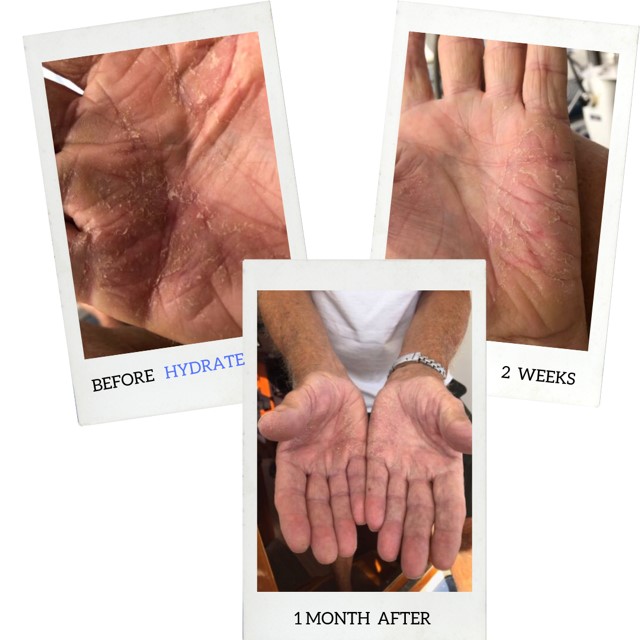How To Prevent Toenail Fungus
No one wants to experience toenail fungus (also called onychomycosis). However, it is relatively...
Even before all current events, whether or not we traveled the world, we’re all likely to run into an unexpected virus or infection every now and then. Proven techniques of hand hygiene, in conjunction with other solid hygiene practices, are an effective barrier against health conditions that threaten our own well being and that of every citizen of every nation. But we think about washing our hands when they’re dirty, and that’s usually enough. Isn’t it? If we’re not healthcare workers, why do we need to be so concerned about hand washing? The simple act of hand washing can protect us and prevent the spread to others of many infectious diseases and viruses, including the common cold. Hand sanitizers may be effective in a pinch, but soap and hot water are always the best defense.
Good hand hygiene begins with soap and running water. Wash hands before preparing food or eating, before touching your eyes and face, before treating any skin irritation, after using the toilet, after coming into contact with your own or anyone else’s body fluids, after sneezing or coughing, and before and after being in the company of anyone suffering from or even susceptible to respiratory illness. After washing, air dry hands or grab a single use towel – and use that or another fresh towel to turn off the faucet. You also may want to keep your nails short to make handwashing most effective.
The CDC (Centers for Disease Control and Prevention) points out that the simple act of handwashing can prevent 30% of diarrhea-related sicknesses, 20% of respiratory infections, and much antibiotic resistance. This is nothing to sneeze at. And handwashing can keep you and others from being sickened by germs already resistant to antibiotics and therefore difficult to treat. The World Health Organization states plainly Save Lives: Clean Your Hands and has published online an 11-step guide to proper handwashing technique for health workers. Going forward from the world’s current health emergency with Coronavirus / Covid-19 taking over the news these days, these techniques are important even after things subside and important to everyone. WHO guidelines stress protection of patients and remind all of us that by washing hands we can enhance infection control and infection prevention for ourselves, our children, our parents, our neighbors, and our colleagues.
Soap and water are always the strongest defense against serious infections in healthcare settings and healthcare facilities. But many infections may be made less threatening at home and at work through basic good hand hygiene practices: Clostridium difficile (C. difficile or C. diff) is spread by contact with the hands from person to person and cannot be removed by alcohol based hand sanitizers. It causes diarrhea and colon inflammation. Healthcare providers encounter it often on sinks, stethoscopes, and thermometers, but it may turn up in any setting on cart handles, bedrails, bedside tables, toilets, telephones, and remote controls. Like C.diff, staphylococcus aureus, which causes pneumonia and bacteremia, is spread from person to person. It resides in the upper respiratory system, including your nose, and on the skin. Clean hands help prevent the spread of infection from any of these sources.
The importance of hand hygiene is impossible to overstate, and health care workers engaged in patient care usually observe strict protocols of hand hygiene compliance. Those of us who visit friends and family in hospitals and healthcare settings are also responsible to ensure infection prevention and infection control. Before we enter rooms in these facilities, we often encounter hand sanitizer and hand rub dispensers.
WHO Guidelines on Hand Hygiene include evidence-based formulations for alcohol-based hand rubs we can make at home. Other gel and spray form sanitizer recipes from commercial sources include aloe vera and tea tree oil, and all advise 60% to 75% alcohol content, with 99% isopropyl alcohol ranked as the best sanitizer possible. Contrary to popular internet lore, vodka is not an effective infection control agent.
Find out more about how Hand Sanitizer can clean your hands
Proper handwashing will probably dry out your hands and nails, so keep some hand moisturizer near sinks and in your purse or backpack. A little inconvenient? Maybe, but it’s an effective way to make hand hygiene comfortable as you minimize the spread of germs and risk of infection to yourself and others. You can also keep nails hydrated with our Hydrate for nail strengthening.

You can keep nails from cracking and soothe dry hands after over-washing by using Hydrate by Doctors Kline + Green. See dramatic results from the customer photo above and find out more by purchasing travel size hand sanitizers online, or via one of our partners.